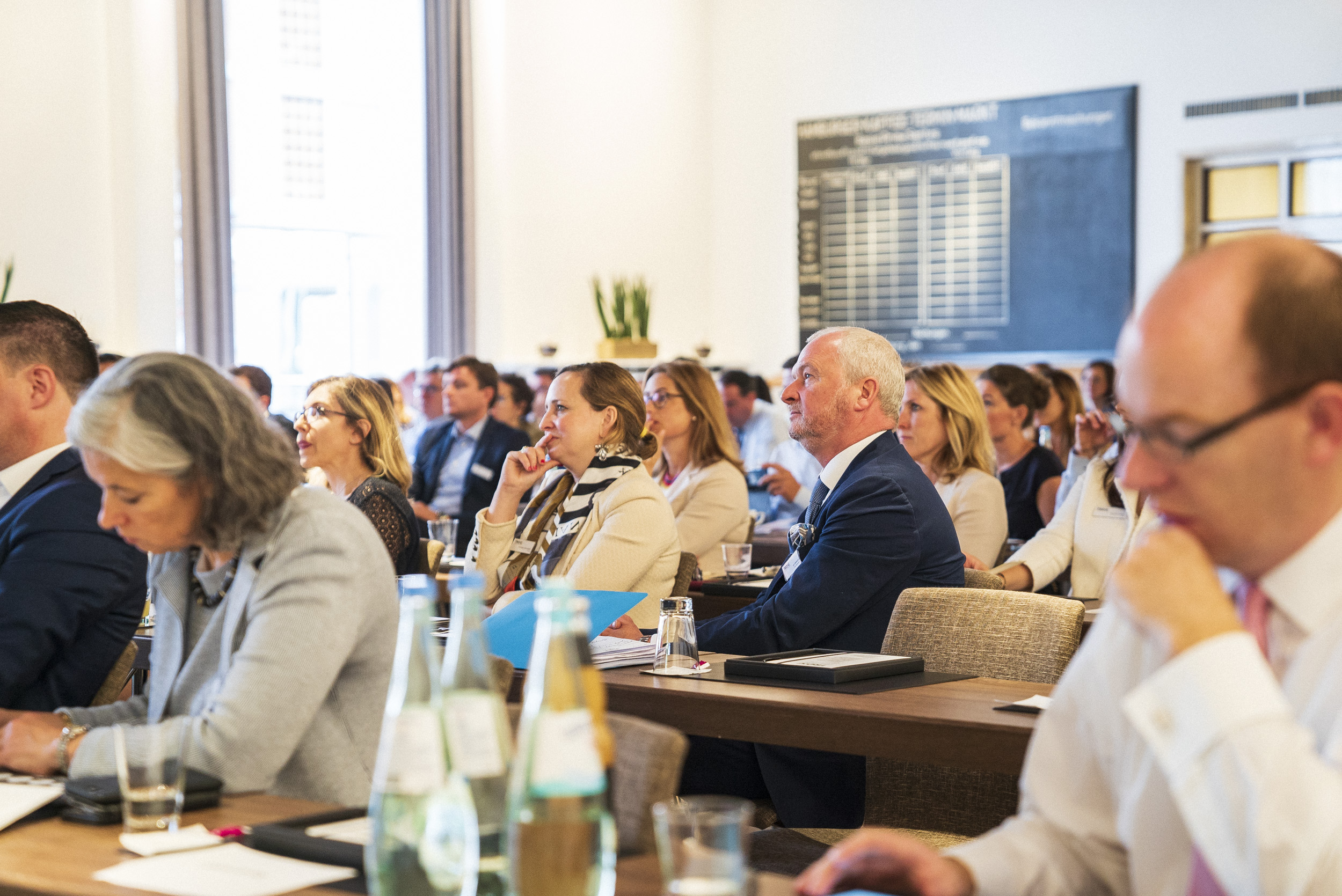INTERNATIONAL. Momentum is building to create industry standards for the exchange of product-related master data after the latest strategy meeting of the Travel Retail Data Innovation Group (TRDIG) in Hamburg on 13 June.
The initiative was founded by Gebr Heinemann last year, as reported, and has taken a major step forward with the commitment of over 30 brand owners and six leading travel retailers: Heinemann, Dufry, DFS, Lagardère Travel Retail, Aer Rianta International and Kappé International, each of which attended the meeting. The Moodie Davitt Report was invited to observe and report on this major industry initiative.
The vision behind the project is to “define a standard and global platform for data exchange in travel retail with the highest possible degree of automation”. Heinemann and partners are encouraging other brands and retailers to participate as they bid to create efficiencies in the streamlining and sharing of data about products in the travel retail market.
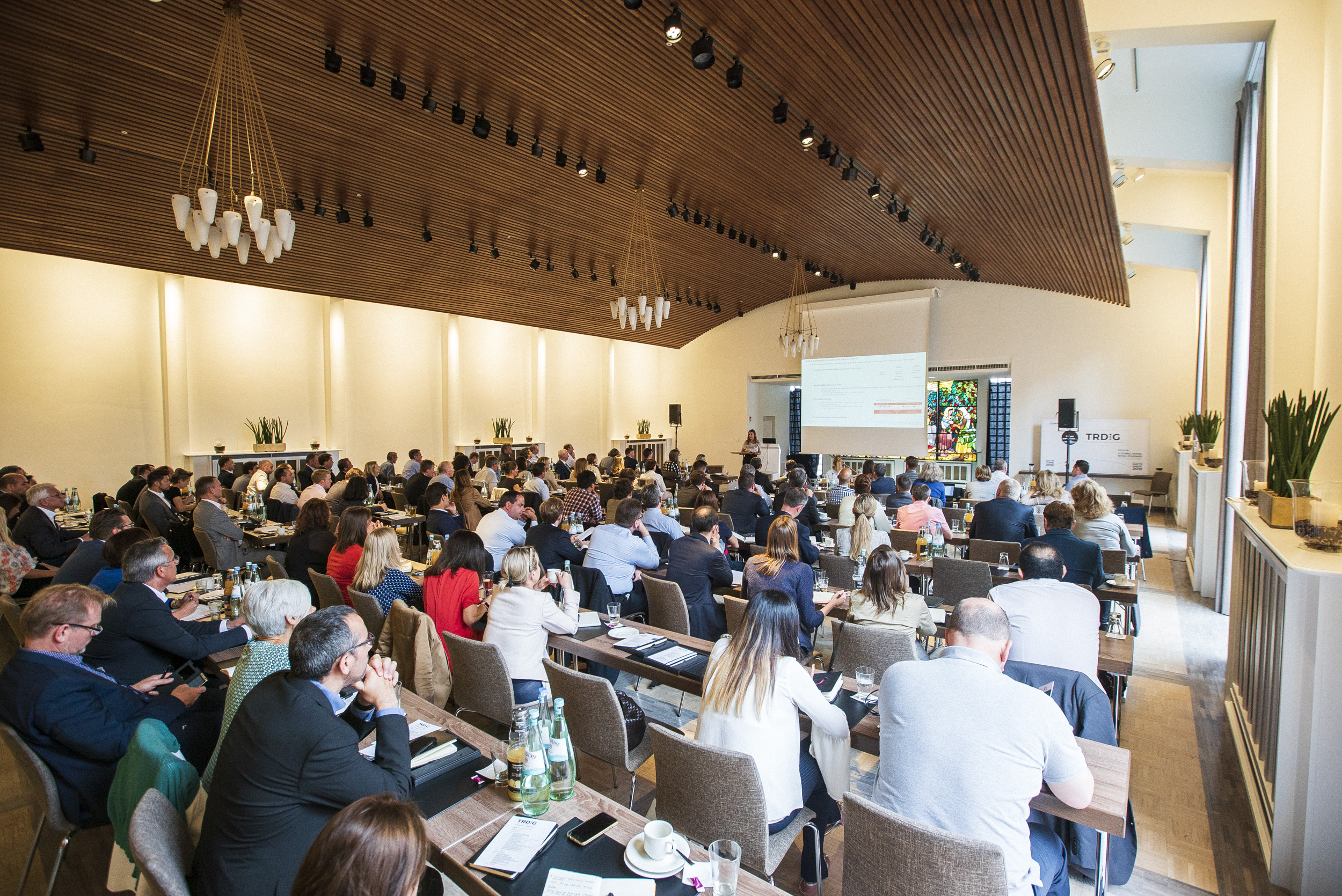

Currently, to comply with retailers’ listing demands, brand owners are required to manually fill out complex forms featuring multiple attributes about each SKU, and to do so for every retailer according to its own criteria. The data pool initiative in travel retail is an attempt to overcome this complexity through digitalisation, to reduce time and cost for all parties and to create a set of agreed-upon industry standards.
Gebr Heinemann Director Fulfillment Inken Callsen said: “This is all about the operational part of the supply chain: order and supply management. Our drive is to automate what can be automated and digitise what can be digitised. All of that is about perfecting our service levels.
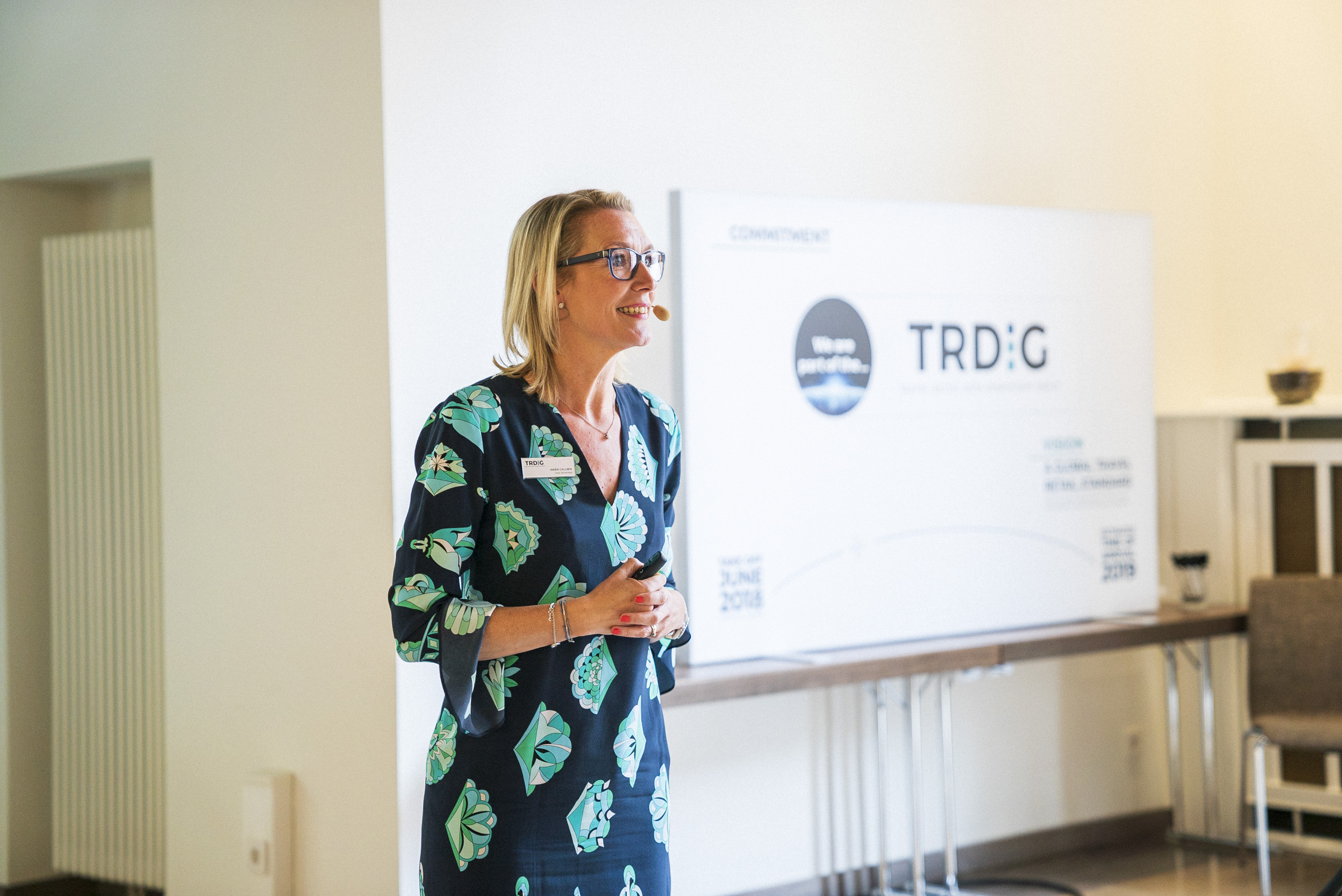
“Today brands have to pull information from their systems, put it manually into paper form, then we in turn have to enter it into our SAP systems. It is not logical or effective, it costs each side much time and cost, and it means we don’t always have the right information as human error will always play a part.
“The Travel Retail Data Innovation Group aims to set up standards for the industry to exchange master data in a highly automated way.”
She added: “It’s important to understand just how important master data is: it’s a strategic job in any company. It matters for everything from time to market to product quality to compliance to e-commerce. It is also a common problem to everyone and what we do here is offer a common solution.”

Although it was created by Gebr Heinemann (in February 2017, at the time with 13 supply partners), the company stresses that it is not a Heinemann system. The TRDIG data is managed by 1WorldSync, a certified data pool provider with headquarters in Germany and offices in Japan and the USA. Crucially, suppliers using the digitalised data pool retain ownership of the data about their products and choose who to share it with.
“It’s fascinating that so many industry representatives have come together with the same goal.”
Through their supply chain departments brand owners traditionally have filed product master data country by country. This is the first attempt to create a global standard, either in duty free or domestic markets.

Gebr. Heinemann Executive Director Purchasing, Fulfillment and Logistics Kay Spanger said: “The global approach and top management involvement is what’s trail-blazing about this ‘project’. For me, it’s fascinating that so many industry representatives have come together with the same goal at the TRDIG Strategy Meeting. I’ve never experienced that in my 39 years in the travel retail industry. All experts and decision makers used the day to make new important contacts and to exchange ideas. This is a crucial success factor for the TRDIG project.”
He added: “This is in the interests of all of us, our market and the mid to long-term future. Heinemann took the lead to organise it but it is a common idea for our suppliers and our partners in friendly competition.
“Together we have all developed an excellent market, which is at the forefront in terms of quality, approach, consumer knowledge and products, except when it comes to product data. There we are lagging behind. The competition tomorrow is not within the industry, it is in new media and e-commerce. We need this data not for one or two domestic markets, but at a global level and that is something new. We have to find a common basis so tomorrow we can be more speedy and efficient than other channels. The aim is simple: to commit to global data automation in travel retail.”
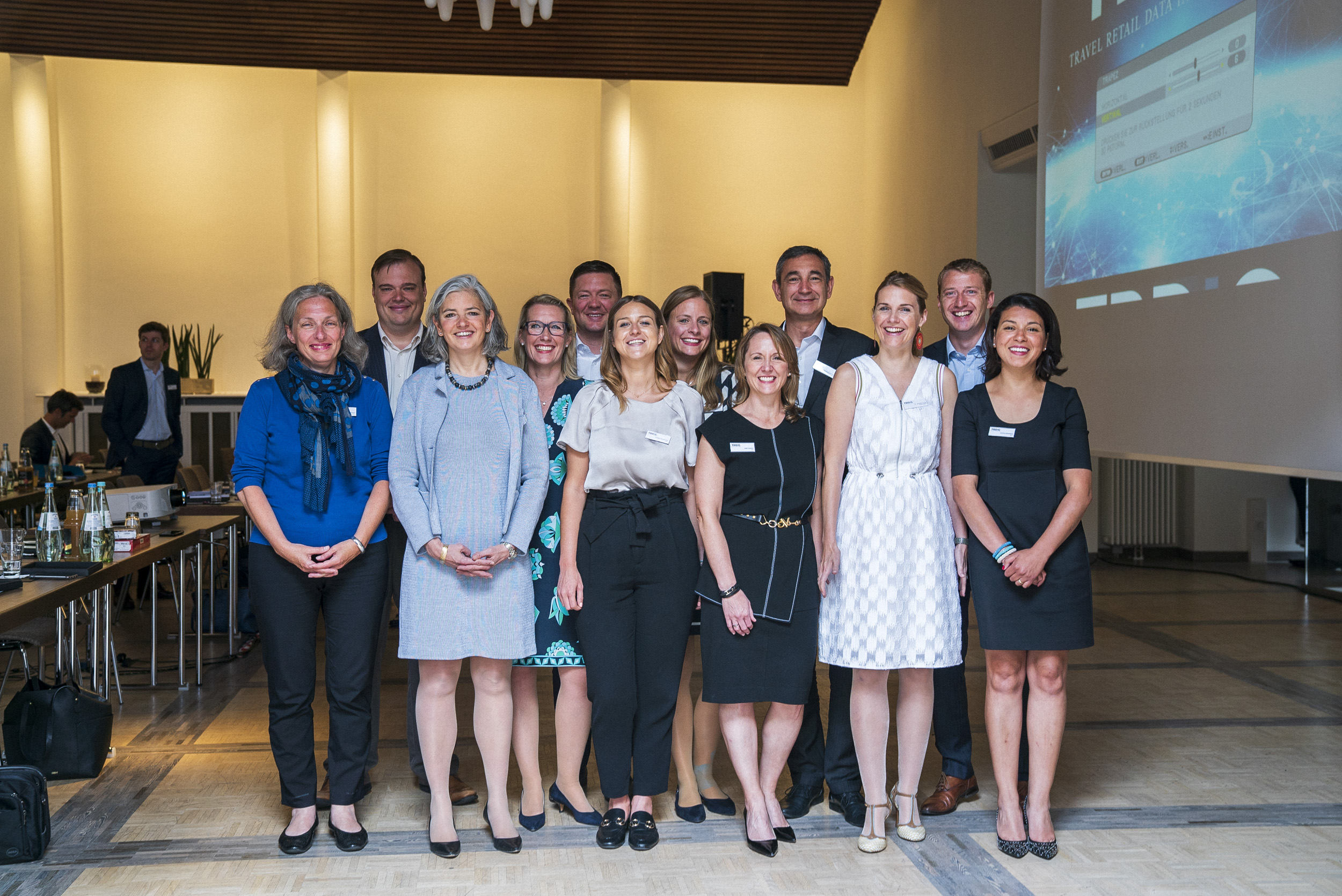
Stressing the reach of the project, Callsen noted: “If we get every company in the room from P&C into the data pool then we’ll have 55% of the references listed at Heinemann automated. In fashion & accessories we could cover 22% of the category. So this is a great start after just a year and a half, and we can do much more with other brands on board.”
The meeting featured insights from retailers and brands about their data management and their views about industry collaboration.
Brown-Forman Global Travel Retail Sales Operations Manager Richard Peckinpaugh said the company expected to be able to upload all product information to the TRDIG/1World Sync system by Autumn 2018.
“I am excited to have a single data point for all our travel retail customers,” he said. “We don’t have a single product database and this is the way to move towards this. We have some resources set aside in the USA to get things off the ground. We aim to move towards a unique product database across Brown-Forman too, with travel retail as the pilot.”
“Not many meetings shape a different future for our industry; today is such a day.”
Outgoing Imperial Tobacco Director Corporate & Compliance Dr. Jennifer Cords underscored the value of agreeing on product definitions and descriptions. “We all have our own jargon and our own descriptions in our companies but that is part of the problem. Couldn’t we agree on attributes that help all of us? We need a data pool and to speak a single language together.
“What we have today is the most complicated Excel files from each and every retailer that need filling out in an old-fashioned way. This initiative is a welcome move from that manual, old-fashioned method to a next generation upload, with a pool that each retailer can take from.
“In fact it is also a compliance issue; we can confirm that our products meet the needs of our travellers with a single description. Imperial Tobacco is committed and is already working closely with Heinemann.”

Another heavyweight brand owner, Coty, represented by Senior Vice President Global Travel Retail Philippe Margueritte, said the project was not only about data, but about supporting sales and growth.
“We know that ‘knowledge is power’. Until now we have had a deficit in data sharing in our industry. Behind data there are strategies – and I think companies feared that if they shared data they would be sharing their strategies.
“But the fact is that we are also spending much more time data crunching than on data analysis. It’s double the cost being spent for low efficiency.
“And there is complexity too. At Coty we have more than 1.2 million items in our database, creating 100,000 new ones a year. We reach more than 750,000 customers.
“We have built a multi-disciplinary team at Coty, one involving compliance, marketing, supply chain/IT to work on this project. We have several key principles. What we do for one retailer we want to do for all. We also want to have 100% reliable data; that seems clear when you change 100,000 items a year but it’s not easy. Also, it’s a two-way street. We are thinking about the next step: bringing the retailers the marketing data they need to sell our products in their store.”
He concluded with an emphasis on the role that such a project can play in the business. “Not many meetings shape a different future for our industry; today is such a day.”
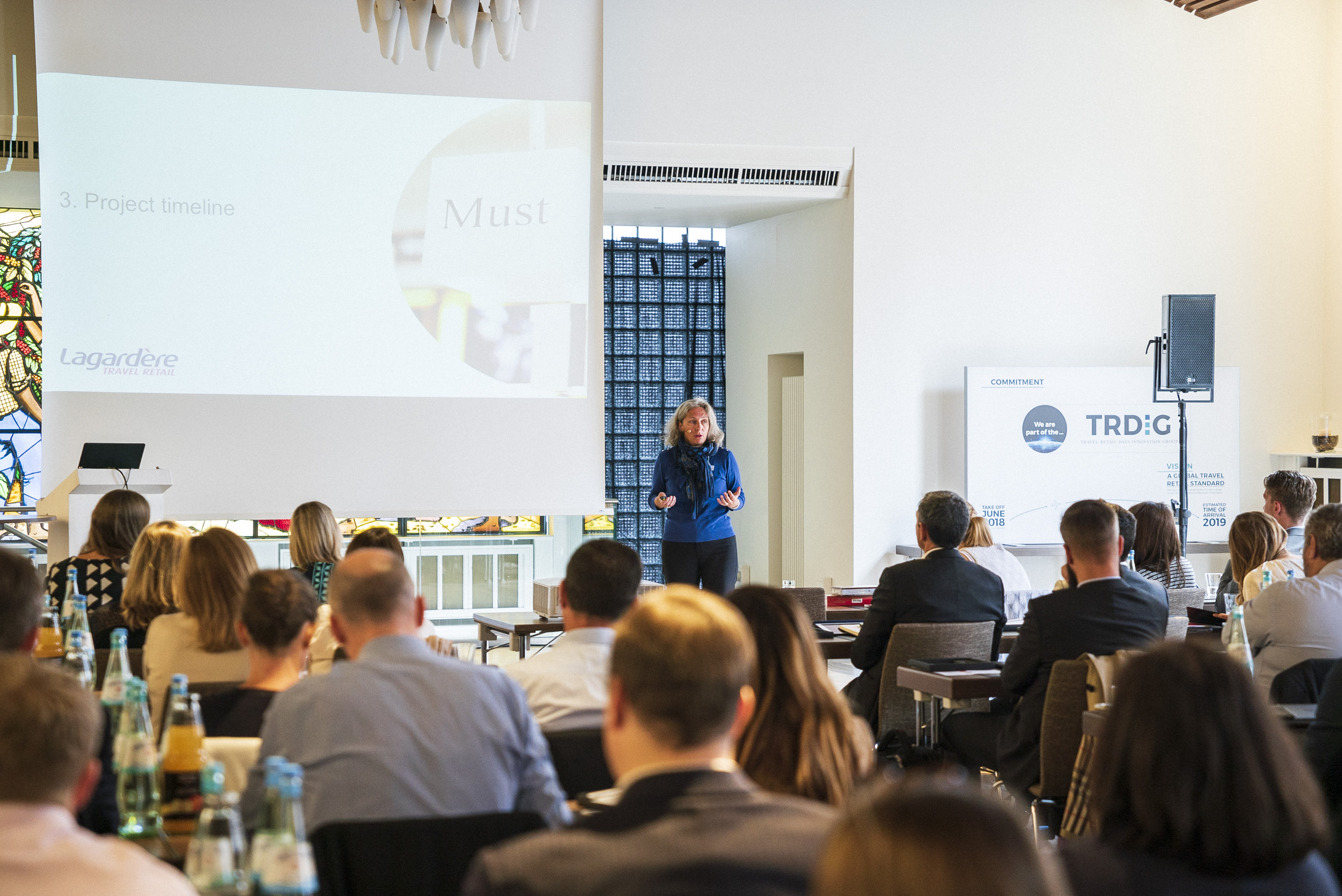
Mars International Travel Retail also highlighted the value for both retailers and consumers, as well as internally.
Mars Compliance Manager Louis Clauss said: “We face big commercial challenges with the definition of product attributes, of which there are many versions. Data sources, formats and systems are all different.
“What is key for us to is to confirm a single data warehouse for MITR; involve the right people from each department in one room, notably data, systems and compliance experts and to have clear processes.”
Agreed-upon product descriptions can also play a part in strengthening the industry message with regulators around food labelling.

This argument was backed up by ETRC Deputy Secretary General Julie Lassaigne, who highlighted the industry’s work to develop digital solutions for packaging information to consumers. This becomes vital with local regulations becoming more strict, with onerous supply chain demands and travel retail exclusives at increasing risk because of stringent national labelling. A pilot project for digital solutions for labelling goods in travel retail was completed in May; next steps include seeking approval for these solutions from the EU Commission.
The voices of other travel retailers were critical elements in the meeting, with some of the industry majors (there were speakers from DFS, Dufry and Lagardère Travel Retail) lending their weight – and building momentum – behind this initiative.

For each, key motivations included becoming more agile in a changing world, improving efficiency to market and leveraging brands’ marketing assets in a more streamlined way.
Dufry Global Head of Master Data Alessia Poveromo said: “I am excited about this new project; it is the right direction for us. It offers a win-win for suppliers and retailers. It can increase our speed to market, it means less manipulation of files, higher quality of data from our vendors, increased efficiency and more flexibility. Dufry is committed to this initiative and it is a priority for me. We have created a cross-functional team to take this project forward and will work with 1WorldSync to do this further.
“We understand that the market is changing and that digital is a key component of retail and travel retail. We want to include not only every article but also attributes that make digital marketing possible and which enable travel retail to lead the retail world in digitalisation. Our message is that we understand that the traditional data of articles is key but we must focus on the marketing component for the future. We are fully behind it and will be with you on this project.”
“It can be difficult to get product on time in every store and sometimes that is a master data issue. It affects our entire value chain.”
Lagardère Travel Retail Supply Chain Director Sophie Boasson was also encouraged by the momentum built to date. She said: “This is the biggest commitment we have seen on master data; we agree it’s a major factor for success in our industry and is very positive.
“Within Lagardère Travel Retail it’s about accuracy, compliance, reliability and time to market. It can be difficult to get product on time in every store and sometimes that is a master data issue. It affects our entire value chain. We handle around 900,000 SKUs from 15,000 brands in our database. Last year we opened four new countries; that often means taking on existing stock but these can be codified differently even if it’s the same product, all adding complexity. We created 180,000 SKUs last year and it’s the same every year.
“This is a logical solution to solving our master data complexity. The challenges include how we cope with master data specific to local brands; it’s a key factor. Another is how we deal with fashion given the number of SKUs created each year.”
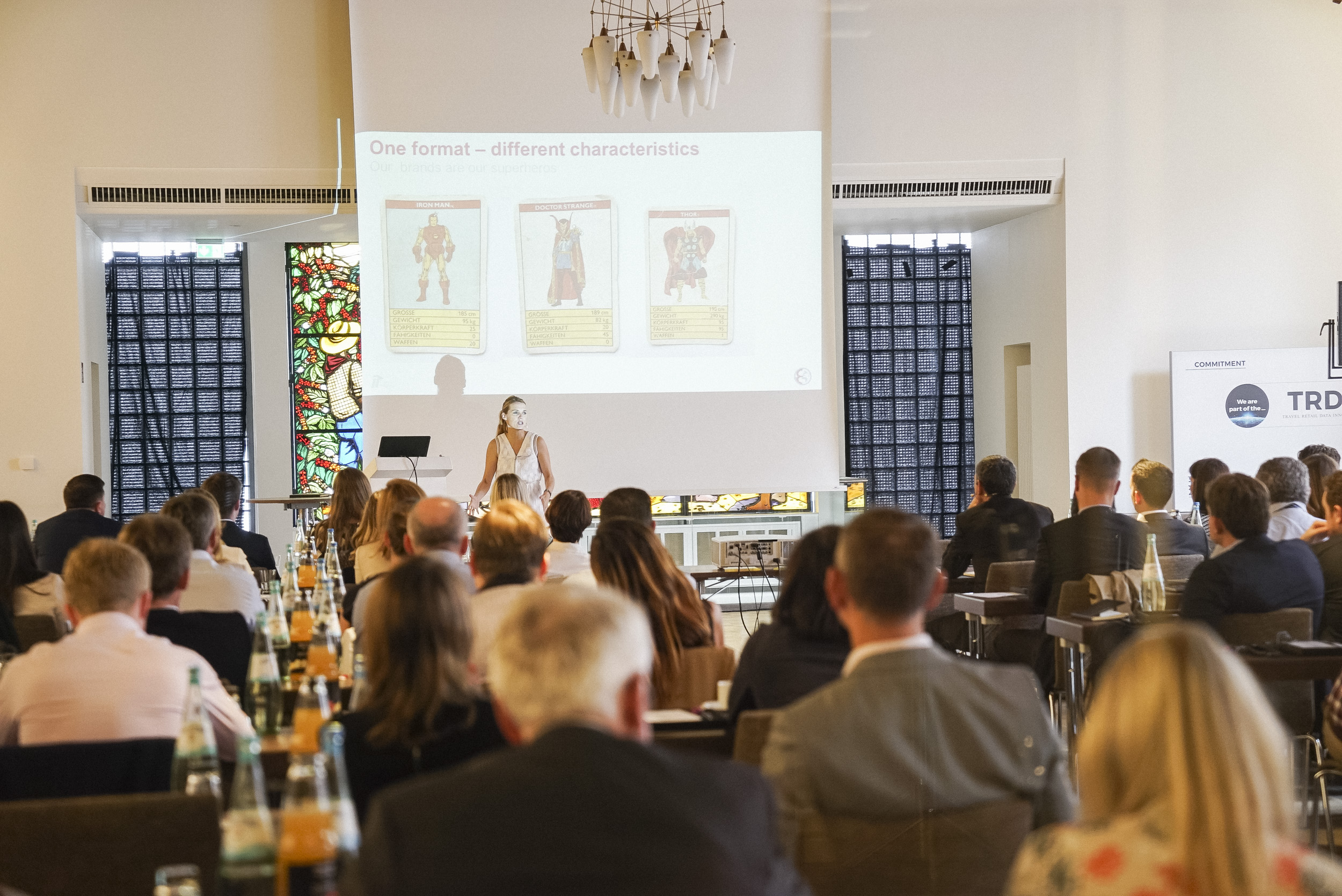
Other key speakers included 1WorldSync CEO Karin Bochert, 1WorldSync Account Executive Markus Bäumer and Gebr Heinemann Project Manager Fulfillment Laura Moser, a key driver of the project at the German travel retailer.
For the rest of 2018, goals include confirming the commitment of more companies to the data exchange project and setting up a project team to start implementation. By 2019, the aim is to establish global standards and a global travel retail market for data, with data exchange running via the TRDIG pool.
Callsen said: “There will be many milestones over the next two years. We will set travel retail attributes and standards. We will bring more suppliers onboard, we will look into more categories – fashion, watches, wine – define playlists for each category and integrate omni-channel marketing. By 2019 the project can go live and we will “live” the data pool although it will be far from finished. But with a community working together it’s easier to overcome challenges. So let’s drive the change together.”
The day ended with a signing ceremony, a show of commitment from brands and retailers to the project.
Spanger closed by thanking partners for your trust in an initiative organised by Heinemann. “The retailer partners could have said no but it shows the goodwill for all of us to work together on a common initiative. There will be imperfections; but if we work together we can live with the little things that don’t work at the beginning.”
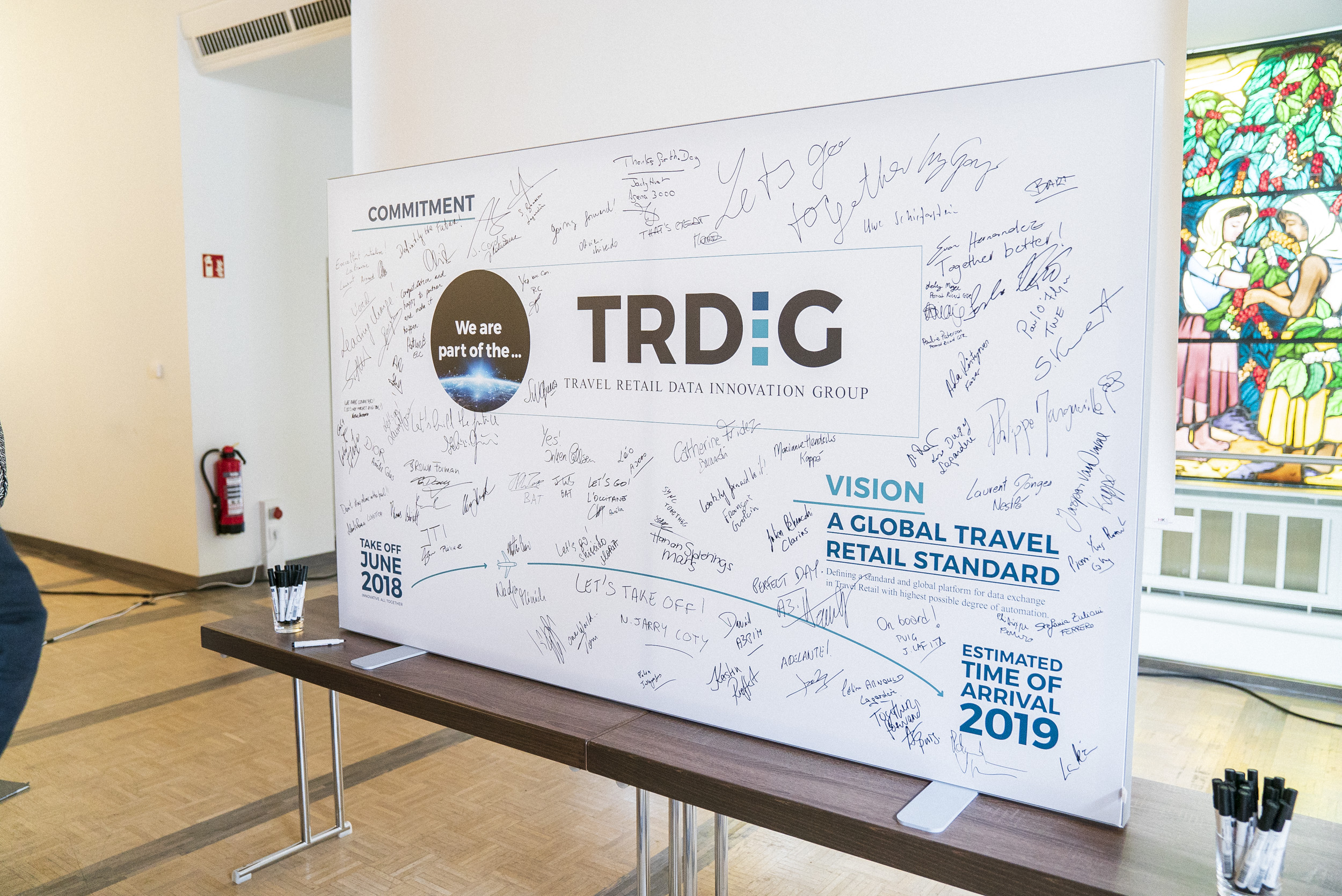

Q&A with Gebr Heinemann Director Fulfillment Inken Callsen
The Moodie Davitt Report: Can you outline the core goals and vision behind this project?
Inken Callsen: Basically the vision was to set up standards for the industry to exchange master data in a highly automated way. We can probably never reach full automation, but we can still go quite far in setting new standards. Today brands have to pull information from their system, put it manually into paper form, then we in turn have to enter it into our SAP system. It is not logical or effective, it costs each side much time and cost, and it means we don’t always have the right information as human error will always play a part.
For any potential partners that are sceptical, what do you claim are the benefits?
Such a system brings speediness, frees up resources for other jobs (data analysis rather than data entry) and you don’t end up with mistakes in the forms as you do today. Currently the way we exchange master data on products is not a good system. Even over the past three years, the complexity of master data (with new regulation on labelling for example) has increased to such an extent that we may be reaching the point where we cannot manage this process manually any more. An Excel sheet requiring 140 attributes from Heinemann (from width to length to height to country, origins and ingredients) and similar forms from DFS or Dufry is not a workable process for everyone.
Who are you working with to develop the system?
It’s important to note that this is not a Heinemann system, it’s just a Heinemann initiative. We work with an expert, 1WorldSync, a certified data pool provider with a headquarters in Germany and offices in Japan and the USA, and they have a wide knowledge of data pools. We want this to work at a global level and that is the challenge. It’s not about matching the requirements of a retailer in Germany with a brand in Germany. It’s about creating a global standard. And that is a first for any retail industry, domestic or travel retail.

Who owns the information and who has access? How far does the information go?
The brands own the data. Only those who are allowed to be recipients by the brand can access it.
Security is always a question and you do get people who are concerned about the data pool being hacked for example. First, we believe the system is safe and secure, and second in the existing system you can have an Excel sheet sent to a wrong person, or other risk factors.
We are also talking about pure product information, not sales data, inventory or anything else. And in fact, most of the information is available if you just look at the pack or label, from ingredients or materials to country of origin or sizes. So really all that information is there already. This is about automating its delivery.

How might you take this innovation to the next stage?
There is an appetite in today’s omnichannel world to also include marketing information, visuals, video and so on. First though we need to work on the product data, and if the product images or other elements are missing they can come later. What is key is to get the first stage right.
As a next step we could offer access for the consumer to find ingredients or allergens, to address regulatory needs. But first we have to get everyone in the pool, get this right and then with ETRC ask the EU Commission to accept this approach. It will be an evolution.

What is the timeframe from now?
We have the first data in our system and brands are saying they are ready now. We don’t have all the brands yet but there are around 35 at this meeting, plus six retailers. We will push hard now as will many brands who see the benefits. The big change today is to see how far Dufry is, and to see Lagardère, DFS and others coming onboard. It’s a new project that requires the right people in the company to be involved. You need the right stakeholders around the table to make it happen. If you are a brand who says ‘I need this for all of these retailers’ then it lends weight.
What is the logical outcome of the process for brands who want to work with Heinemann?
There will come a time when, if you want to be listed with Heinemann, you will have to provide the master data in this agreed format. We don’t have a timeframe but this is the position Heinemann will take in future. We think brands will also talk to other customers and speak about the benefits, and that will ensure it grows and grows. For now we plan to enlarge it and make it truly global.
What might be the challenges to hitting the objectives and the ambitious timeframe for implementation?
It is getting all of the brands, especially smaller brands, involved. There is complexity for smaller players but it reduces their workload, time and energy to do it for a pool of retailers, not for each one individually. The retailers also have questions about global versus regional systems, but there is complexity regardless of whether there is one data pool or many. We will help them organise that too.
